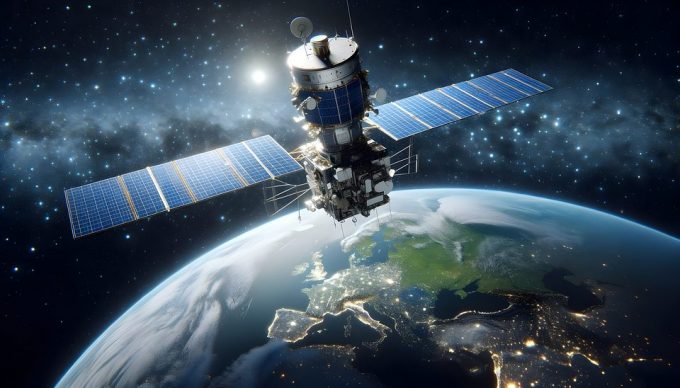We have written previously about the rapidly growing European active exchange-traded fund (ETF) sector. One of the more interesting aspects of this growth has been the role of thematic funds, and we have had a good example this week, with the launch of the ARK Space & Defence Innovation UCITS ETF (ARKX). Having listed in Germany on 29 October, the fund appeared on the London Stock Exchange on 4 November; further listings in Italy and Switzerland will follow shortly.
Founded in 2014 by Catherine Wood, ARK has established itself as a market leader in actively managed ETFs focused on disruptive innovation, initially in the US but more recently in Europe. It has had significant success in Europe with its Innovation ETF and Artificial Intelligence & Robotics ETF, both of which have grown to over $300m in size and have delivered returns in excess of 75% over the past year (to 30 September).
ARK will be hoping for further success with ARKX. Managed by Catherine herself, the fund invests in companies driving next-generation defence capabilities and space infrastructure. Its areas of focus include autonomous mobility, intelligent devices, advanced battery technologies, 3D printing, reusable rockets, adaptive robotics and neural networks. A US version has existed since 2021, delivering an 8.2% annualised return since launch (to 30 September, versus 14.0% for the S&P 500 index).
As a theme, defence is an unambiguous growth area, with Western defence spending rising significantly in the coming years. Under pressure from President Trump, NATO members have each committed to increasing this spending to 5% of GDP, including a core target of 3.5% of specifically military spending (as opposed to related areas such as infrastructure and resilience). Clearly this will be a boon for traditional defence companies. But it increasingly also means a boost for “SpaceTech”, as warfare continues to move from earth’s surface into orbit.
It is the ongoing tragedy of the war in Ukraine that has both illustrated the importance of SpaceTech in war, and has further accelerated the trend. Cyber warfare is increasingly complex, while the battlefield frontline has come to be dominated by drones – which are heavily reliant on satellite communications to function. Russia has used a range of electronic warfare tactics to interfere with GPS, radio and signals communication, with Ukraine responding by increasing its use of space-based intelligence systems, which are far more difficult to disrupt.
One fund that has been at the vanguard of developments in SpaceTech, including their application in warfare, since launch in 2021 is Seraphim Space Investment Trust (SSIT, which was also featured in our “Spooky stocks” article last week). Whereas active ETFs typically only trade on very minimal discounts to underlying NAV, as an investment trust, SSIT’s current discount of nearly 30% offers an attractive entry point for investors. However, the biggest difference between SSIT and an ETF such as ARKX is the trust’s focus on unlisted companies. As in many other areas of high innovation, some of the more cutting edge and exciting developments are not accessible through public markets. Many fast-growing businesses are opting to stay private for longer and SSIT is the only way of accessing many of these.
The fund’s strapline, appropriately enough, is “where Science Fiction becomes Science fact”. With a specific focus on private companies involved in satellite technology, where the cost of launch has collapsed in recent years, there is clearly a civilian angle through investment in areas such as food security, climate change and sustainability. However, much of the technology is dual use, and around four-fifths of the fund’s current portfolio has applications in defence.
SSIT’s biggest holdings, ICEYE, D-Orbit and ALL.SPACE are already embedded in the operational infrastructure of European and US militaries. For example, ICEYE operates the world’s first constellation of miniaturised satellites that can generate near-real-time images of Earth regardless of weather conditions; earlier this year it announced a joint venture with Rheinmetall, one of Germany’s leading defence contractors, to co-develop and produce satellites. This reflects a broader pattern, with European countries scrabbling to catch up in SpaceTech following years of underinvestment that has led to them lagging behind the US.
Away from specifically SpaceTech, the broader investment theme of defence is clearly in vogue given these increased military budgets. At a recent HANetf conference in London, I attended an interesting presentation focused on their Future of Defence UCITS ETF (which has the rather nifty ticker of NATO). This is a more than $3bn passive fund that invests exclusively in companies domiciled in NATO and NATO-allied countries through tracking the EQM NATO+ Future of Defence Index. In the US there are active ETFs that are solely focused on defence and, while I am not aware of any in Europe that do so, this would appear to be a gap in the market waiting to be filled.
More broadly, in the US – where the vehicle is much more established – active ETFs have shown themselves well suited to thematic investing, not least because they are open to interpreting themes more creatively in the absence of a traditional benchmark. We are increasingly seeing this being replicated In Europe. Away from defence, themes with relevant active ETF products include global travel, Sharia-compliant equities, healthcare and sustainable energy. Many of these funds remain small, but the potential for rapid growth is clear.
We are hosting an active ETF panel discussion on 28 November in our usual 11am “In the HotSeat” slot. I will be joined by David Ricketts, Asset Management Correspondent at Financial News; Paul Lacroix, Head of Products at Ossiam, and Michael Mohr, Global Head of Xtrackers Products at DWS. The importance of thematic investing in the active ETF landscape will be one of many topics that we cover. Further details can be found HERE.
